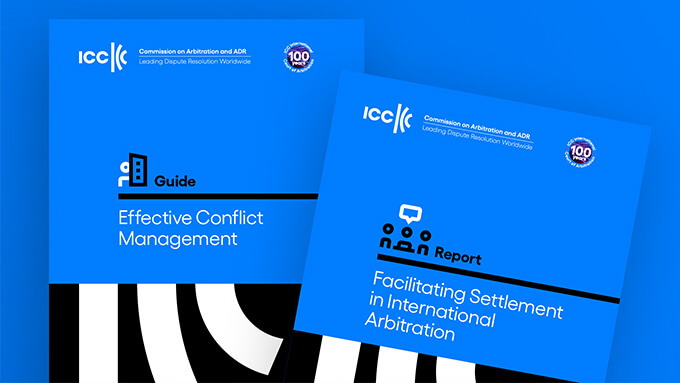ICCA General Report on the Right to a Physical Hearing in International Arbitration
Introduction
On 4 September 2020, a research project “Does a Right to a Physical Hearing Exist in International Arbitration?” was launched by an International Council for Commercial Arbitration (“ICCA”) taskforce. Due to the Covid-19 pandemic, many arbitration hearings were held online. Many institutional rules have allowed hearings to be held online.[1] Some of the rules, such as the IBA Taking of Evidence in International Arbitration 2020 have defined “remote hearings.”[2] However, many legal questions have arisen related to remote hearings. As a response to this, and particularly addressing the question of whether a right to a physical hearing in international arbitration exists, a report was published following the publication of the survey (“General Report”).[3] The General Report was released on 19 May 2022, which covers responses received from 78 New York Convention jurisdictions.[4]
The General Report describes the background and methodology of the survey, provides high-level conclusions drawn from the survey results, and offers some concluding remarks.[5] The General Report deals with questions as to whether the lex arbitri expressly or impliedly provided for a right to a physical hearing in arbitration, the rules related to civil procedure and whether those rules may apply to arbitration, whether the parties may waive (for example by adopting institutional arbitration rules that allow remote hearings) their right to a physical hearing, the arbitral tribunals’ power to decide to hold a remote hearing even if the parties had agreed to a physical hearing, and questions related to setting aside of awards based on a breach of such right.
The findings of the General Report have been summarized below.
The first part of the conclusions relates to the parties’ right to a physical hearing (whether expressly or by way of inference) in the lex arbitri. The General Report states that “none of the surveyed jurisdictions’ laws governing arbitration proceedings contains an express provision granting parties to an arbitration the right to a physical hearing.” As to the question related to the possibility of exclusion of the right to a physical hearing, the General Report states that the majority of the national reports concluded (albeit on different grounds) that the right to a physical hearing should be considered as excluded.[6] In any event, according to most of the national reports, the format of hearings falls within the scope of arbitral tribunals’ discretion, and thus parties do not have a right to a physical hearing in international arbitration.[7] The only limitation related to the tribunal’s jurisdiction is matters related to due process, which may be a ground for non-enforcement of an award under Article V(1)(b) of the New York Convention. Article V(1)(b) states that recognition or enforcement of the award may be refused if the award debtor was not given proper notice of the appointment of the arbitrator or of the arbitration proceedings or was otherwise unable to present his case.
There are only a few jurisdictions where the national reports concluded that the existence of a right to a physical hearing could be inferred by way of the interpretation of the lex arbitri. These jurisdictions are Ecuador, Tunisia, Venezuela, Vietnam, Zimbabwe and Sweden.[8] Although the majority view in Sweden is that a remote hearing complies with Swedish law, the issue is currently pending before the Svea Court of Appeal.
The General Report states that there are jurisdictions where this right remains unsettled, these being the People’s Republic of China, Bahrain, Denmark, Germany and Norway – all of which have arbitration laws based on the UNCITRAL Model Law. The wording of Article 24(1) of the UNCITRAL Model Law, which has raised debate in many jurisdictions reads as follows:
“Subject to any contrary agreement by the parties, the arbitral tribunal shall decide whether to hold oral hearings for the presentation of evidence or for oral argument, or whether the proceedings shall be conducted on the basis of documents and other materials. However, unless the parties have agreed that no hearings shall be held, the arbitral tribunal shall hold such hearings at an appropriate stage of the proceedings, if so requested by a party.”
This debate has mainly concerned “whether the parties’ right to request an oral hearing translates into the right to request a physical hearing”.[9]
The General Report also deals with perhaps one of the most important issues relating to the enforcement of arbitral awards, which is whether a potential breach of the parties’ right to a physical hearing should result in the award being set aside or if the enforcement of such an award should be rejected by courts. The General Report sets out that a group of jurisdictions interpret Article V(1)(b) as a safeguard of the forum’s due process standards. In this respect, there are different views as to the courts’ interpretation of Article V(1)(b) of the New York Convention and the standards the courts may apply.
The final question the General Report addresses the following question: if a right to a physical hearing existed at the seat, would its violation amount per se to a ground for refusal? In this vein, the General Report states that considering Article V(1)(d)[10], there were a variety of nuances as to whether the violation of a procedural rule of the law of the seat would amount per se to a ground for refusal.
The General Report confirms that the risk of an award being set aside based on solely the tribunal’s decision to proceed with a remote hearing (rather than a physical hearing) is very low and there is no reported case where such an award was set-aside or the tribunal was disqualified.[11] According to the General Report, for the enforcement of the award to be rejected or the award to be set aside, there ought to be other grounds, such as a party being unable to present its case or being subjected to unequal treatment. The General Report states that courts have rejected claims based on technological imperfections, time zone differences and possibilities for abusive behavior. Although this observation is related to cases in litigation, it may be applicable to arbitration, as well.
Conclusion
During the past two years, the issue of whether the parties’ have a right to a physical hearing in international arbitration has been considered by tribunals and parties. Dealing with this issue extensively, the General Report includes a comparative survey covering responses received from 78 New York Convention jurisdictions. These national reports are also published individually.[12]
Although certain issues remain to be debated and the parties’ right to a physical hearing will be tested in a post-pandemic world (ie when the parties have a real choice between physical and remote hearings) as acknowledged in the General Report[13], the General Report as it is, is a helpful guide which addresses an issue that has been the subject matter debates and thus is a valuable resource for parties, arbitrators and academics.
- Also referred to as “virtual” or “non-physical” hearings. General Report, p. 2.
- Balıkçı Sezen, Melissa: “IBA Rules on Taking of Evidence in International Arbitration”, Erdem & Erdem Newsletter, March 2021, https://www.erdem-erdem.av.tr/en/insights/iba-rules-on-taking-of-evidence-in-international-arbitration-2020
- Co-edited by Giacomo Rojas Elgueta, James Hosking and Yasmine Lahlou, available at: https://www.arbitration-icca.org/right-to-a-physical-hearing-international-arbitration
- https://www.arbitration-icca.org/right-to-a-physical-hearing-general-report
- General Report, p. 2 and https://www.arbitration-icca.org/right-to-a-physical-hearing-international-arbitration
- General Report, p. 8.
- General Report, p. 10.
- General Report, p. 11. In Venezuela such right was found to be limited to the first procedural hearing and in Sweden this reflects a minority view.
- General Report p. 14.
- Article V(1)(d) of the New York Convention reads as follows: the composition of the arbitral authority or the arbitral procedure was not in accordance with the agreement of the parties, or, failing such agreement, was not in accordance with the law of the country where the arbitration took place.
- General Report, p. 39.
- https://www.arbitration-icca.org/right-to-a-physical-hearing-international-arbitration
- General Report, p. 39.
All rights of this article are reserved. This article may not be used, reproduced, copied, published, distributed, or otherwise disseminated without quotation or Erdem & Erdem Law Firm's written consent. Any content created without citing the resource or Erdem & Erdem Law Firm’s written consent is regularly tracked, and legal action will be taken in case of violation.
Other Contents

Emergency arbitration addresses the need for interim protection before the arbitral tribunal is constituted in institutional arbitrations. Arbitral institutions establish short timeframes to ensure parties can obtain interim relief quickly. For example, the International Chamber of Commerce (“ICC”) requires that the emergency...

International arbitration remains the preferred mechanism for resolving complex cross-border disputes. Yet despite its advantages—neutrality, enforceability, flexibility—arbitration is frequently criticized for being too slow, too expensive, and too procedurally heavy. Often, parties proceed through hearings and...

For arbitral awards rendered in international commercial arbitration to produce legal effects in foreign jurisdictions, they must be subjected to proceedings for “recognition” and “enforcement.” This process is governed by the New York Convention as well as by the provisions of the Law on Private International Law...

Arbitrability, the determination of whether a specific subject matter can be resolved through arbitration, constitutes a fundamental aspect of arbitration within the scope of international commercial dispute resolution. This concept draws a delicate balance between party autonomy—a fundamental principle of arbitration...

The recognition, enforcement, and annulment of foreign court and arbitral awards in Türkiye are processes in which public policy emerges as one of the most critical criteria for review, both in theory and in practice. The Court of Cassation decisions determine the direction of case law regarding the scope and...

As is well known, the action for annulment of objection is a special type of lawsuit regulated under Article 67 of the Turkish Execution and Bankruptcy Law No. 2004 (“EBL”). The primary objective of this action is to nullify a debtor’s objection to execution proceedings. Despite its procedural function of facilitating...

On 16 December 2024, the London Court of International Arbitration (“LCIA”) released its third batch of challenge decisions covering the period from 22 July 2017 to 31 December 2022. The LCIA has also issued a detailed commentary that identifies key legal themes and analytical trends, offering practitioners...

The International Chamber of Commerce (“ICC”) has published its report on the dispute resolution statistics for 2023 (“Report”) , shedding light on the evolving landscape of international arbitration...

Syndicated loans undoubtedly hold a significant position among global financing models. In 2023 alone, 3,655 syndicated loans were provided to companies in the US, with their total value reaching USD 2.4 trillion...

Preliminary attachment refers to the temporary seizure of a debtor's assets to secure a creditor's claim. While it serves as a vital instrument for safeguarding the rights of creditors, it is subject to specific and stringent conditions under Turkish law to prevent any potential misuse...

One of the most important reasons for parties to choose arbitration is the opportunity to freely choose their arbitrators. This freedom granted to the parties also distinguishes arbitration from proceedings before state courts, where the parties are deprived of the power to determine the judges who will conduct the...

The 6th Civil Chamber of the Court of Cassation ruled on October 12, 2022, that national courts have jurisdiction over objections to provisional measures in international arbitration disputes...

The declaration of intent to resolve disputes through arbitration is the fundamental constituent element of an arbitration agreement. To speak of a valid arbitration agreement, the parties' intention to arbitrate must emerge in a way that leaves no room for dispute...

In the wake of the evolving dynamics of commercial transactions, the Netherlands Arbitration Institute Foundation (NAI) announced new arbitration rules . 2024 NAI Arbitration Rules are in force as of 1 March 2024 and will be applicable on proceedings filed on or after this date...

With the global shift to online activities, domain names play a crucial role in identifying businesses. It is more common than ever for a domain name to be registered that is confusingly similar to a trademark or service mark...

The ICC Commission on Arbitration and ADR (“Commission”) published a new guide and report with the aim to increase awareness on alternative dispute resolution (“ADR”) mechanisms to prevent disputes and strengthen the relationship between all stakeholders.The Guide on Effective Conflict Management...

Mergers and Acquisitions (“M&A”) are restructuring of companies or assets through various types of financial transactions, such as mergers, acquisitions, purchase of assets, or management acquisitions. This Newsletter article covers M&A disputes being solved before arbitral tribunals.

In the context of arbitration practice, the principle of revision au fond means that the courts can not examine the merits of a dispute when reviewing an arbitral award. This principle is most commonly encountered in set aside and enforcement proceedings. An arbitral award is evidence of the parties’ willingness...

Under Turkish law, parties may agree on the settlement of disputes that have arisen or may arise, regarding the rights that they can freely dispose of, by arbitration. However, disputes which are not subject to the will of parties, such as the disputes relating to in rem rights of immovables, bankruptcy law...

Dubai International Arbitration Center amended its Arbitration Rules on 25 February 2022. The 2022 Arbitration Rules were published on 2 March 2022 and came into effect on 21 March 2022. The Rules will be applied to arbitrations that are filed after 21 March 2022; unless parties agree otherwise...

In the aftermath of the Achmea decision, controversies on intra-EU arbitrations continue. Most recently, the Paris Court of Appeal has annulled two arbitral awards rendered against Poland. Meanwhile, the Higher Regional Court of Berlin has refused to declare that an Irish investor’s ICSID claim...


Under Turkish law, the legal remedy that can be applied against arbitral awards is an annulment action. Law on International Arbitration No. 4686 (“IAL”) finds its application area in arbitration proceedings where Turkey is the place of arbitration...

It is well known that following a decision of the Court of Justice of the European Union, problems arose related to arbitration of intra-EU disputes, and particularly arbitration under the Energy Charter Treaty...

Arbitration in corporate law contains controversial elements in many respects, especially the issue of arbitrability. Even in legal systems where these disputes are considered to be arbitrable, uncertainties remain on whether an arbitration clause can be included in the articles of...





Arbitration has benifited from a great increase in the use of technology which has directly effected the conduct of proceedings. More particularly, with digitalization, the way that we conduct arbitration proceedings has been changed to reflect the current needs of parties, with an aim of increasing time...

































































